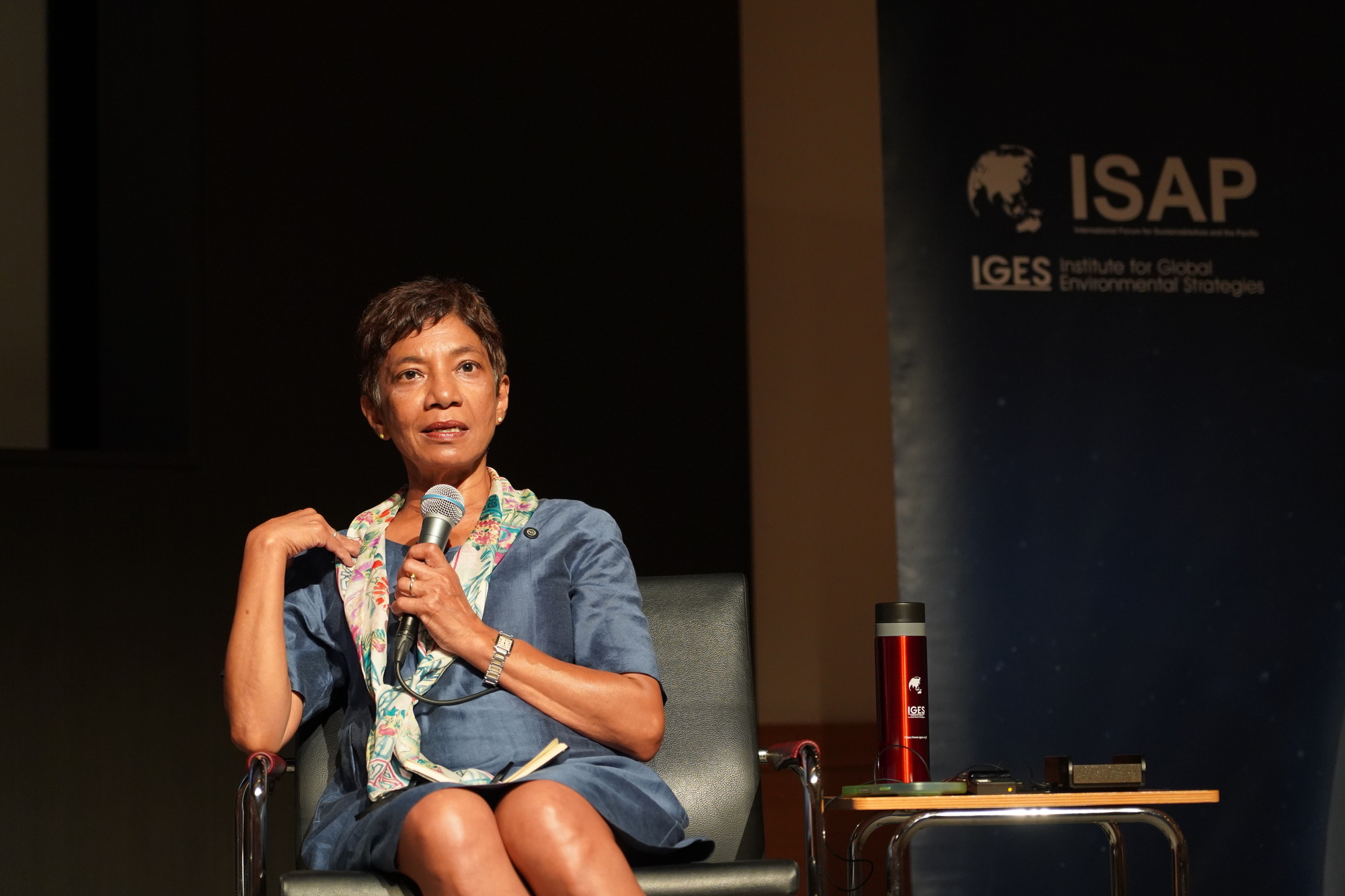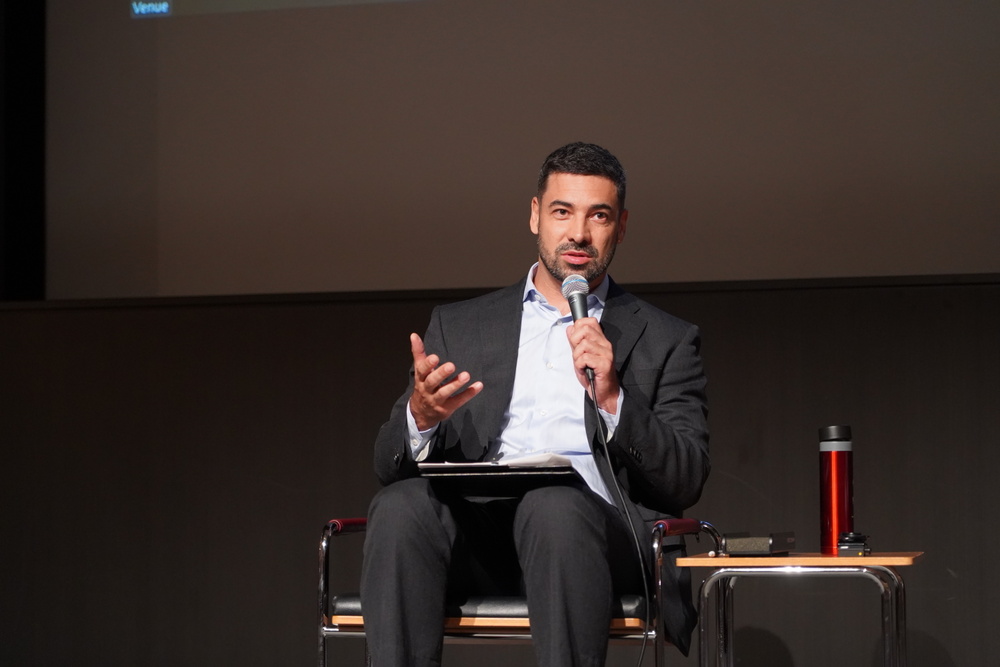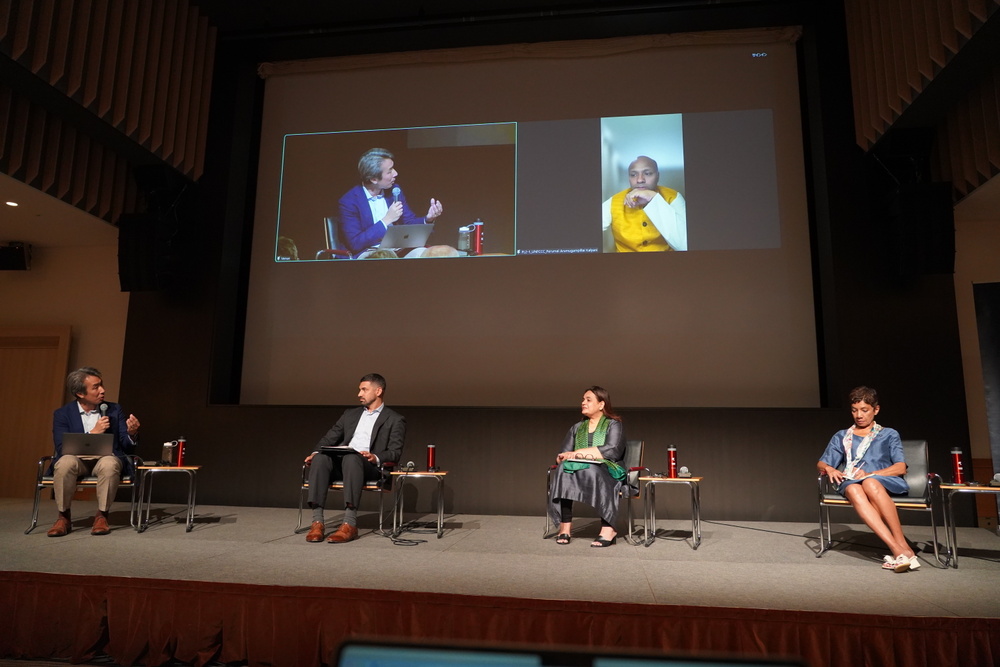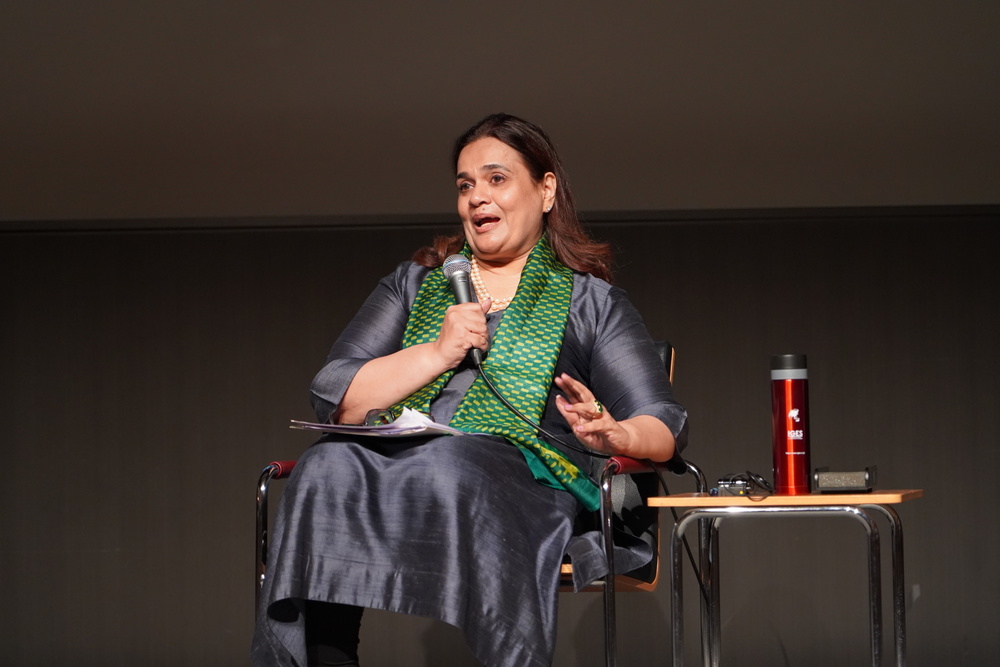“Mutirão” for climate action: Building synergies on the road to COP30
30 July 2025, Yokohama

ITTO Executive Director Sheam Satkuru speaks at an ISAP 2025 plenary session on 29 July 2025 in Yokohama, Japan. Photo: Paula Sarigumba/ITTO
In March, Brazilian President Luiz Inácio Lula da Silva called for a “mutirão”—a powerful appeal for immediate, collective climate action and a rapid transition to decarbonized economies. Framing it as a “global COP30 effort to tackle climate change,” the call set the tone for the upcoming UNFCCC Conference of the Parties (COP30), to be held in Belém, Brazil.
Rooted in Brazil’s Indigenous traditions, mutirão refers to a “great mobilization around a common goal.” This culturally grounded concept is now serving as a guiding vision for Brazil’s COP30 Presidency.
Speaking at the International Forum for Sustainable Asia and the Pacific (ISAP) 2025 held in Yokohama, Japan, on 29 July, Henrique Eller, Head of Energy, Environment and Agriculture at the Embassy of Brazil in Tokyo, echoed President Lula’s call. During the plenary, he emphasized that under Brazil’s COP30 leadership, “we expect countries, societies, and individuals to come together to solve a problem collectively.”

As the world looks ahead to COP30, the urgency of aligning climate action with the broader Sustainable Development Goals (SDGs) has never been greater. Climate mitigation must be viewed not only as a means to reduce emissions, but also as a catalyst for co-benefits: enhancing adaptation, improving biodiversity, restoring land, advancing the circular bioeconomy, and promoting social equity. A synergistic, cross-cutting approach is essential to ensure a just and effective transition to a net-zero society.
During the ISAP 2025 plenary session titled “Accelerating Climate Action Through a Synergistic Approach: Delivering on Net-Zero and Sustainable Development at COP30,” Sheam Satkuru, Executive Director of the International Tropical Timber Organization (ITTO), underscored the Organization’s longstanding contribution to integrated solutions. “ITTO delivers nature-based solutions that contribute to mitigation, adaptation, and the achievement of the SDGs,” she said, highlighting ITTO’s four-decade legacy. She also acknowledged the vital support of ITTO member countries, noting Brazil as its largest producer member and Japan as a key contributor to the ITTO’s work.
Looking ahead to COP30, stakeholders aim to build on the momentum from COP29, where Parties reached consensus on the full operationalization of Article 6 of the Paris Agreement. Experts at the session discussed how high-integrity carbon markets and other Article 6 mechanisms can drive effective mitigation while supporting sustainable development.

“The GST (Global Stocktake) outcome will be the key driver of integrating climate action with the SDGs,” said Perumal Arumugampillai Kalyani, Manager at the UNFCCC Mitigation Division, who joined the session virtually from Bonn. “It explicitly recognizes the need for a holistic, integrated approach, and calls on Parties to take actions that simultaneously address climate change and sustainable development, including the eradication of poverty.”
Panellists also highlighted the need to dismantle silos, both sectoral and institutional, to foster collective solutions. “Silos are important to understand the problem,” said Mr Eller. “But to act, you need to break silos in a collaborative, interactive way.” Ms Satkuru added that synergy must be cultivated across all levels of governance: “It has to grow from local communities to regions and beyond.”
Purvi Mehta, Senior Global Climate Specialist, emphasized the potential of synergy to unlock innovation. “Synergy also means tapping into new opportunities,” she said, pointing to emerging markets for climate technologies and adaptation solutions. “Climate (change) is an ecological problem, but it is also an economic opportunity.”

In response to Brazil’s initiative in establishing the Tropical Forests Forever Facility, Ms Satkuru advocated for greater climate finance to be directed toward forests. “What we can also do together is to persuade some of the climate finance to be channelled into forests,” she said.
“Climate finance has increased tremendously, and forests must be part of that equation. Whether totally protected or sustainably managed and legally harvested, forests are central to addressing climate challenges and biodiversity conservation, whilst protecting the livelihoods of those who depend on them. Food security is key, as is wood security. Forests sequester and store carbon, while the use of wood stores carbon for its lifecycle. These facts prove that forests and its derivatives are one of the most effective and renewable nature-based solutions”, she added.
As we pave the road to COP30, ITTO stands with Brazil in advancing the vision of a mutirão, a collective, inclusive mobilization for ambitious climate action. Together, by harnessing collective ambition and aligning climate action with sustainable development, we can deliver lasting impact at COP30 and beyond.
---------------------
Organized by the Institute for Global Environmental Strategies (IGES), the International Forum for Sustainable Asia and the Pacific (ISAP) is held annually to share information and facilitate diverse discussions on sustainable development in Asia and the Pacific, with the participation of front-line experts and diverse stakeholders from international organizations, governments, business and NGOs. The Forum has been providing venues for up-to-date discussions with experts and diverse stakeholders from international organizations, governments, business, NGOs and knowledge/information sharing with a wide range of practitioners. This year’s theme is “Our world in flux: how to shape a sustainable future through just transition”.